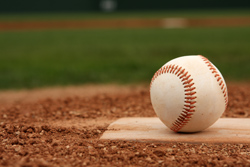Revenue sharing poses potential roadblock to Major League Baseball restarting, sports lawyers say

Image from Shutterstock.com.
Among the “Big Four” professional sports in the U.S. and Canada, baseball most naturally lends itself to implementing the types of social distancing measures recommended by the Centers for Disease Control and Prevention amid the COVID-19 pandemic.
But sports lawyers say Major League Baseball likely has the most delicate off-the-field legal and contractual issues to iron out before the teams can play ball.
Their comments came ahead of ongoing efforts this week by representatives of team owners and the Major League Baseball Players Association to resolve outstanding areas of disagreement so a shortened season can kick off in early July.
The MLBPA agreed earlier this year to a deal in which players would be paid on a prorated basis as part of a season that would be roughly half as long, an agreement that would result in the ballplayers taking pay cuts. But the owners on Tuesday proposed a plan that would require players to take further pay cuts, with the players earning the highest salaries taking the biggest salary reductions, according to USA Today.
Attorney Jeffrey Kessler, who counts the MLBPA as one of his many sports clients, told the ABA Journal last week that proposals to further reduce baseball players’ pay would likely meet some resistance.
“The players have no interest in negotiating a second wave of cuts when they have already given back 50%, and they are the ones taking the primary health risk,” says Kessler, co-executive chairman of Winston & Strawn. “That is a problem of the owners’ own making.”
Major League Baseball did not respond to a request for comment Tuesday. The league’s commissioner, Robert D. Manfred Jr., is an attorney who previously served on the board of the Sports Lawyers Association.
Meanwhile, there were also recent reports that MLB team owners would seek an agreement in which players’ salaries would be based on the revenue generated during a regular season that would be cut in half and feature no fans. However, USA Today reported Tuesday that regular season revenue sharing appears to be off the table.
Sports lawyers told the ABA Journal that baseball would have had a much harder time in reaching a revenue sharing deal for a shortened season than the other major leagues, which have a history of collective bargaining agreements with revenue sharing and salary caps.
“The problem in baseball is that there hasn’t been the level of trust between the owners and players association that normally you would have to achieve in the course of negotiating CBAs over and over that have revenue sharing and a salary cap in them,” says Stephanie J. Vardavas, a former MLB assistant general counsel who is based in Oregon.
Marc Edelman, a New York-based sports attorney and law professor, agreed.
“It is not feasible for the owners to simply say, ‘This is a special situation and now we are revenue sharing,’” says Edelman, a professor at Baruch College’s Zicklin School of Business in New York. “The owners are going to need to think a lot more out of the box.”
Another brewing issue for the MLB owners and players is that their current collective bargaining agreement expires Dec. 1, 2021. Lawyers said the players likely would be reluctant to agree to some form of regular season revenue sharing for a 2020 return to play out of fear that the owners could later argue for including that type of arrangement in a longer-term CBA.
Edelman says one way MLB and other major leagues could help entice players’ unions to agree to restarting play is by allowing athletes the option of choosing not to compete this season without that being used against them in future seasons. This would enable players who have pre-existing health conditions or are otherwise fearful of contracting COVID-19 to sit out.
Kessler, who has represented the players associations for all the major sports, says he thinks most sports will provide that type of option for athletes.
Leagues also should ensure their athletes can engage in preseason training before regular seasons start or restart, says attorney Alan C. Milstein, a New Jersey-based shareholder at Sherman, Silverstein, Kohl, Rose & Podolsky who has represented a number of athletes in civil litigation.
“It is too difficult to hit a 100-mph baseball or pitch a 100-mph baseball without a lot of practice,” Milstein says. “Too many guys are going to get hurt if you just start right up.”
Spring training in baseball, which typically begins in February, was halted in March due to the spread of the novel coronavirus. Teams are now reportedly planning for hosting a second round of spring training at their home parks ahead of a potential restart of the season.
Despite the negotiating challenges, Vardavas expressed optimism the MLB owners and players would reach a deal for play to resume this summer.
“I think they all learned from the 1994-1995 strike [which ended up canceling the 1994 World Series] that they just can’t lose sight of their mutual shared interest anymore,” she says.



